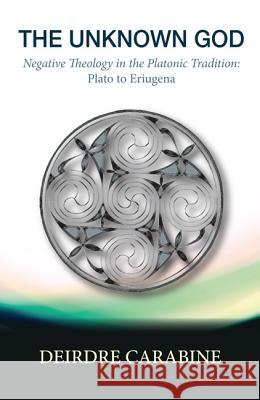The Unknown God » książka
The Unknown God
ISBN-13: 9781620328620 / Angielski / Miękka / 2015 / 382 str.
""This book contains a careful, thorough, and where necessary skeptical as regards doubtful evidence (especially in the case of Plato and the Old Academy) of the beginnings in European thought of the negative or apophatic way of thinking and its relations to more positive or kataphatic ways of thinking about God. One of its greatest strengths, perhaps the greatest, is that the author makes clear that none of the persons concerned, Hellenic, Jewish or Christian, was engaged in the pursuit of a philosophical abstraction, or the heaping of rhetorical superlatives on God. They were rather concerned to present the origin of the universe as an intimately present living reality which infinitely transcends our thought and speech. This, combined with careful attention to the varieties of negative theology and its relations with positive, and the particular difficulties experienced by the members of the various traditions involved, makes the book the best introduction to the negative theology available."" -A. H. Armstrong, Emeritus Professor of Greek, University of Liverpool, England. Emeritus Professor of Classics, Dalhousie University, Halifax, Nova Scotia, Canada. Senior Fellow of the British Academy. Irish academic Deirdre Carabine has lived and taught in Uganda for more than twenty years. She has recently been founder Vice-Chancellor at the Virtual University of Uganda (VUU), the first fully online university in Sub-Saharan Africa. Prior to that she set up International Health Sciences University in Kampala. She has taught at Queen's Belfast, University College Dublin, and Uganda Martyrs University. Currently, she is Director of Programmes at VUU. She attended the Queen's University of Belfast where she graduated with a PhD in philosophy, and University College Dublin where, as one of the first Newman Scholars, she gained a second PhD in Classics. She is also author of John Scottus Eriugena in the Great Medieval Thinkers Series (2000).
""This book contains a careful, thorough, and where necessary skeptical as regards doubtful evidence (especially in the case of Plato and the Old Academy) of the beginnings in European thought of the negative or apophatic way of thinking and its relations to more positive or kataphatic ways of thinking about God. One of its greatest strengths, perhaps the greatest, is that the author makes clear that none of the persons concerned, Hellenic, Jewish or Christian, was engaged in the pursuit of a philosophical abstraction, or the heaping of rhetorical superlatives on God. They were rather concerned to present the origin of the universe as an intimately present living reality which infinitely transcends our thought and speech. This, combined with careful attention to the varieties of negative theology and its relations with positive, and the particular difficulties experienced by the members of the various traditions involved, makes the book the best introduction to the negative theology available.""-A. H. Armstrong, Emeritus Professor of Greek, University of Liverpool, England. Emeritus Professor of Classics, Dalhousie University, Halifax, Nova Scotia, Canada. Senior Fellow of the British Academy.Irish academic Deirdre Carabine has lived and taught in Uganda for more than twenty years. She has recently been founder Vice-Chancellor at the Virtual University of Uganda (VUU), the first fully online university in Sub-Saharan Africa. Prior to that she set up International Health Sciences University in Kampala. She has taught at Queens Belfast, University College Dublin, and Uganda Martyrs University. Currently, she is Director of Programmes at VUU. She attended the Queens University of Belfast where she graduated with a PhD in philosophy, and University College Dublin where, as one of the first Newman Scholars, she gained a second PhD in Classics. She is also author of John Scottus Eriugena in the Great Medieval Thinkers Series (2000).











